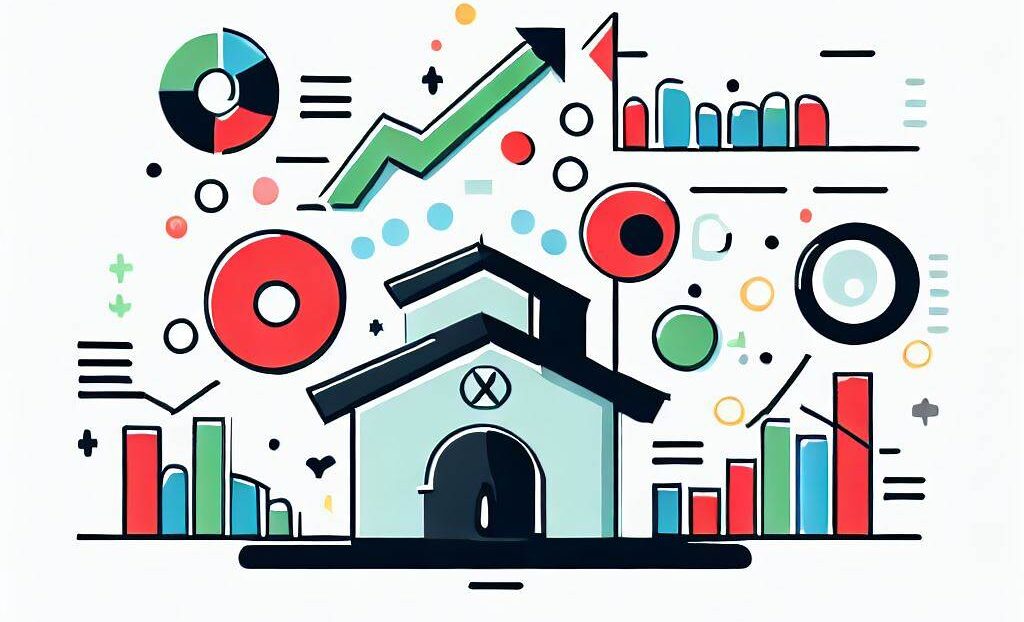
Big data is not a new concept, but it is becoming increasingly relevant for the real estate industry. Big data refers to large and complex data sets that can reveal patterns, trends, and insights that are not easily detected by conventional methods. Big data can help real estate investors and developers make better decisions, identify opportunities, and reduce risks.
The power of unconventional data sources
Traditionally, real estate professionals have relied on historical data, market reports, and expert opinions to assess the value and potential of properties. However, these sources are often incomplete, outdated, or biased. They also fail to capture the nuances and dynamics of local markets and consumer preferences.
Big data offers a new way of looking at real estate data, by incorporating unconventional sources such as:
- Resident surveys, mobile phone signals, and online reviews that can reveal the quality and popularity of local amenities, such as restaurants, shops, and parks.
- Macroeconomic and demographic indicators that can forecast long-term market trends, such as crime rates, median age, and income levels.
- Geographic and environmental data that can measure the impact of factors such as proximity to public transportation, schools, hospitals, and natural features.
These sources can provide more granular and real-time information about the characteristics and performance of properties and neighborhoods. They can also help uncover hidden patterns and correlations that are not obvious from traditional data.
The benefits of big data analytics
Big data analytics can help real estate professionals gain a competitive edge by enabling them to:
- Target prospective buyers more effectively by understanding their needs, preferences, and behaviors.
- Optimize property valuations more accurately by comparing similar properties and analyzing market conditions.
- Mitigate risks more proactively by detecting potential issues and challenges before they become costly problems.
- Identify opportunities more quickly by spotting emerging trends and niches that offer high returns.
Big data analytics can also enhance creativity and innovation in real estate development and design. By using data-driven insights, developers can create properties that match the expectations and demands of their target customers. They can also experiment with new concepts and features that differentiate their products from the competition.
The challenges of big data implementation
Despite the potential benefits of big data, there are also some challenges and barriers that prevent its widespread adoption in the real estate industry. Some of these include:
- Data quality and availability: Not all data sources are reliable, relevant, or accessible. Some data may be inaccurate, incomplete, or outdated. Some data may be proprietary or protected by privacy laws. Some data may be difficult to collect or process due to technical limitations or costs.
- Data analysis and interpretation: Not all data is easy to understand or use. Some data may be too complex or voluminous to analyze. Some data may require advanced skills or tools to extract meaningful insights. Some data may be ambiguous or contradictory, leading to false or misleading conclusions.
- Data integration and communication: Not all data is compatible or consistent. Some data may come from different sources or formats that need to be harmonized or standardized. Some data may need to be integrated with other types of information or systems to create a holistic view. Some data may need to be communicated effectively to stakeholders or customers to generate value.
The future of big data in real estate
Big data is not a fad or a buzzword; it is a reality that is transforming the real estate industry. Real estate professionals who embrace big data will have a significant advantage over those who ignore it. Big data will enable them to make smarter decisions, improve efficiency, increase profitability, and deliver better customer experiences.
However, big data is not a magic bullet; it is a tool that needs to be used wisely and responsibly. Real estate professionals who use big data will also need to overcome the challenges and risks that come with it. They will need to ensure the quality and security of their data sources; they will need to develop the skills and capabilities to analyze and interpret their data; they will need to integrate and communicate their data effectively with their partners and clients.
Big data is changing the game for real estate investors and developers; are you ready to play?
